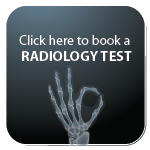Contrary to what most people think, cholesterol, in small quantities, is essential for our daily lives. In order to understand why, it is important to understand what it is, and what functions it completes. Cholesterol, which is produced mainly by the liver, is used to build the structure of cell membranes, make hormones like oestrogen, testosterone and adrenal hormones, help your metabolism work efficiently, and produce bile acids to help the body digest fat and absorb nutrients.
Excessively high or low cholesterol levels, though, can result in cholesterol disorders. The main cholesterol disorders include:
Signs of Cholesterol Disorders:
There are no definitive cholesterol disorder symptoms that can indicate a that a patient is suffering from this condition. The only way to confirm this is through a blood test.
Before delving into this any further, it is important to be aware of the different types of cholesterol. There are two basic kinds of cholesterol; Low-Density Lipoprotein (LDL), also called Bad Cholesterol, and High-Density Lipoprotein (HDL), or Good Cholesterol.
Patients with high blood cholesterol will be faced with LDL cholesterol build-up in the inner walls of the arteries, which are essential for carrying blood to the heart and the brain. This build-up causes the arteries to narrow, which can lead to chest pain (angina), heart attack or strokes.
In order to arrest high blood cholesterol as soon as is possible, your doctor may recommend that you get your cholesterol checked more often if you have a family history of cholesterol disorders, or suffer from high blood pressure, are overweight or smoke.
Causes of Cholesterol Disorders:
In cases where high blood cholesterol is faced, one of the main causes can be a diet that is high in saturated fat and cholesterol. Essentially, this means that a diet that is high in meat, eggs or dairy products.
Other factors that can cause this cholesterol disorder include:
Cases of low blood cholesterol disorders can be caused by a separate set of conditions or situations. This can include:
Treatment of Cholesterol Disorders:
While the treatment for cholesterol disorders may vary based on the patient’s specific case history, the general procedure that is followed to combat high blood cholesterol includes:
Your doctor may also prescribe medication to combat your cholesterol disorder, in addition to lifestyle changes, which can include:
The Apollo Clinic Experience:
At Apollo Clinic, our team of experienced cardiologist, internists and endocrinologist will help you detect and arrest any cholesterol disorder. From accurate diagnosis and timely treatment, our experts will ensure that you get the help and support that you need to get through this trying time. If you feel that you may be suffering from a cholesterol disorder, immediately schedule an appointment with one of our experts.
Contrary to what most people think, cholesterol, in small quantities, is essential for our daily lives. In order to understand why, it is important to understand what it is, and what functions it completes. Cholesterol, which is produced mainly by the liver, is used to build the structure of cell membranes, make hormones like oestrogen, testosterone and adrenal hormones, help your metabolism work efficiently, and produce bile acids to help the body digest fat and absorb nutrients.
Excessively high or low cholesterol levels, though, can result in cholesterol disorders. The main cholesterol disorders include:
Signs of Cholesterol Disorders:
There are no definitive cholesterol disorder symptoms that can indicate a that a patient is suffering from this condition. The only way to confirm this is through a blood test.
Before delving into this any further, it is important to be aware of the different types of cholesterol. There are two basic kinds of cholesterol; Low-Density Lipoprotein (LDL), also called Bad Cholesterol, and High-Density Lipoprotein (HDL), or Good Cholesterol.
Patients with high blood cholesterol will be faced with LDL cholesterol build-up in the inner walls of the arteries, which are essential for carrying blood to the heart and the brain. This build-up causes the arteries to narrow, which can lead to chest pain (angina), heart attack or strokes.
In order to arrest high blood cholesterol as soon as is possible, your doctor may recommend that you get your cholesterol checked more often if you have a family history of cholesterol disorders, or suffer from high blood pressure, are overweight or smoke.
Causes of Cholesterol Disorders:
In cases where high blood cholesterol is faced, one of the main causes can be a diet that is high in saturated fat and cholesterol. Essentially, this means that a diet that is high in meat, eggs or dairy products.
Other factors that can cause this cholesterol disorder include:
Cases of low blood cholesterol disorders can be caused by a separate set of conditions or situations. This can include:
Treatment of Cholesterol Disorders:
While the treatment for cholesterol disorders may vary based on the patient’s specific case history, the general procedure that is followed to combat high blood cholesterol includes:
Your doctor may also prescribe medication to combat your cholesterol disorder, in addition to lifestyle changes, which can include:
The Apollo Clinic Experience:
At Apollo Clinic, our team of experienced cardiologist, internists and endocrinologist will help you detect and arrest any cholesterol disorder. From accurate diagnosis and timely treatment, our experts will ensure that you get the help and support that you need to get through this trying time. If you feel that you may be suffering from a cholesterol disorder, immediately schedule an appointment with one of our experts.
Copyright © 2025, Apollo Health and Lifestyle Limited, All Rights Reserved.
I hereby give my consent to AHLL to collect, use, store, share, and / or otherwise process my personal information in accordance with this consent form.
You visited Apollo Clinic services. If you want to book an appointment for consulation.

Login
Loading...